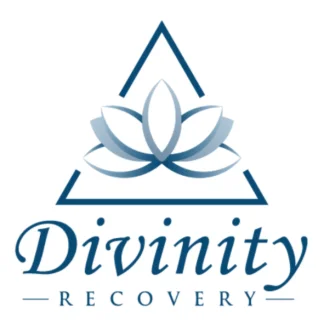Harmony Place
Harmony Place offers rehabilitation services for individuals with substance abus...
Divinity Recovery is located in Los Angeles, California. They provide alcohol and drug rehab services to individuals seeking support and recovering from addiction. They begin treatment with a psychological evaluation and testing to ensure the appropriate care for each client.
Divinity Recovery Addresses the mental, emotional, physical, and spiritual aspects of addiction. Their services include:
The intensive outpatient program meets three times a week for three hours at a time. This allows for nine hours of treatment per week. Individuals will engage in individual therapy, process groups, psychoeducational classes that address addiction and recovery topics, and recovery skill classes that help individuals learn healthy coping mechanisms, how to modify behaviors, along emotional regulation techniques.
The outpatient program meets the basic needs of individuals who are capable of continuing addiction recovery services primarily on their own. They may meet with their mental health counselor and participate in self-help groups one to two times a week on average. The outpatient program also supports those who are in an aftercare phase of recovery through regular self-help meetings and alumni groups.
Divinity Recovery accepts most major medical insurance plans, including Amerigroup, Anthem, Blue Cross Blue Shield, United Healthcare, Magellan, HCSC, and more. Out-of-network benefits may vary, so individuals are encouraged to contact their insurance carrier before starting treatment.
Contact us for more information: (866) 757-0474

Connect with Divinity Recovery by calling their admissions team directly.
(866) 757-0474 Website Get DirectionsWhether a marriage or other committed relationship, an intimate partnership is one of the most important aspects of a person's life. Drug and alcohol addiction affects both members of a couple in deep and meaningful ways, as does rehab and recovery. Couples therapy and other couples-focused treatment programs are significant parts of exploring triggers of addiction, as well as learning how to build healthy patterns to support ongoing sobriety.
Eating disorders include anorexia, bulimia, binge eating, and dysfunctional eating patterns. Many psychologists and other mental health professionals consider eating disorders to be food addictions, meaning food is being used in an addictive way (similar to drug or alcohol addiction). Certain substance abuse treatment programs will have treatment for eating disorders as one of the services offered. An eating disorder may also present as a co-occuring disorder or dual diagnosis alongside drug and alcohol addiction.
Group therapy is any therapeutic work that happens in a group (not one-on-one). There are a number of different group therapy modalities, including support groups, experiential therapy, psycho-education, and more. Group therapy involves treatment as well as processing interaction between group members.
In individual therapy, a patient meets one-on-one with a trained psychologist or counselor. Therapy is a pivotal part of effective substance abuse treatment, as it often covers root causes of addiction, including challenges faced by the patient in their social, family, and work/school life.
Eating disorders include anorexia, bulimia, binge eating, and dysfunctional eating patterns. Many psychologists and other mental health professionals consider eating disorders to be food addictions, meaning food is being used in an addictive way (similar to drug or alcohol addiction). Certain substance abuse treatment programs will have treatment for eating disorders as one of the services offered. An eating disorder may also present as a co-occuring disorder or dual diagnosis alongside drug and alcohol addiction.
Group therapy is any therapeutic work that happens in a group (not one-on-one). There are a number of different group therapy modalities, including support groups, experiential therapy, psycho-education, and more. Group therapy involves treatment as well as processing interaction between group members.
In individual therapy, a patient meets one-on-one with a trained psychologist or counselor. Therapy is a pivotal part of effective substance abuse treatment, as it often covers root causes of addiction, including challenges faced by the patient in their social, family, and work/school life.
Group therapy is any therapeutic work that happens in a group (not one-on-one). There are a number of different group therapy modalities, including support groups, experiential therapy, psycho-education, and more. Group therapy involves treatment as well as processing interaction between group members.
In individual therapy, a patient meets one-on-one with a trained psychologist or counselor. Therapy is a pivotal part of effective substance abuse treatment, as it often covers root causes of addiction, including challenges faced by the patient in their social, family, and work/school life.
In individual therapy, a patient meets one-on-one with a trained psychologist or counselor. Therapy is a pivotal part of effective substance abuse treatment, as it often covers root causes of addiction, including challenges faced by the patient in their social, family, and work/school life.
Harmony Place offers rehabilitation services for individuals with substance abus...
Destinations - Canon House offers inpatient services for adolescents ages 13-17 ...
OPI is a private rehab located in Woodland Hills, California. OPI specializes in...
Changing Steps, located in Los Angeles, California, offers behavioral healthcare...